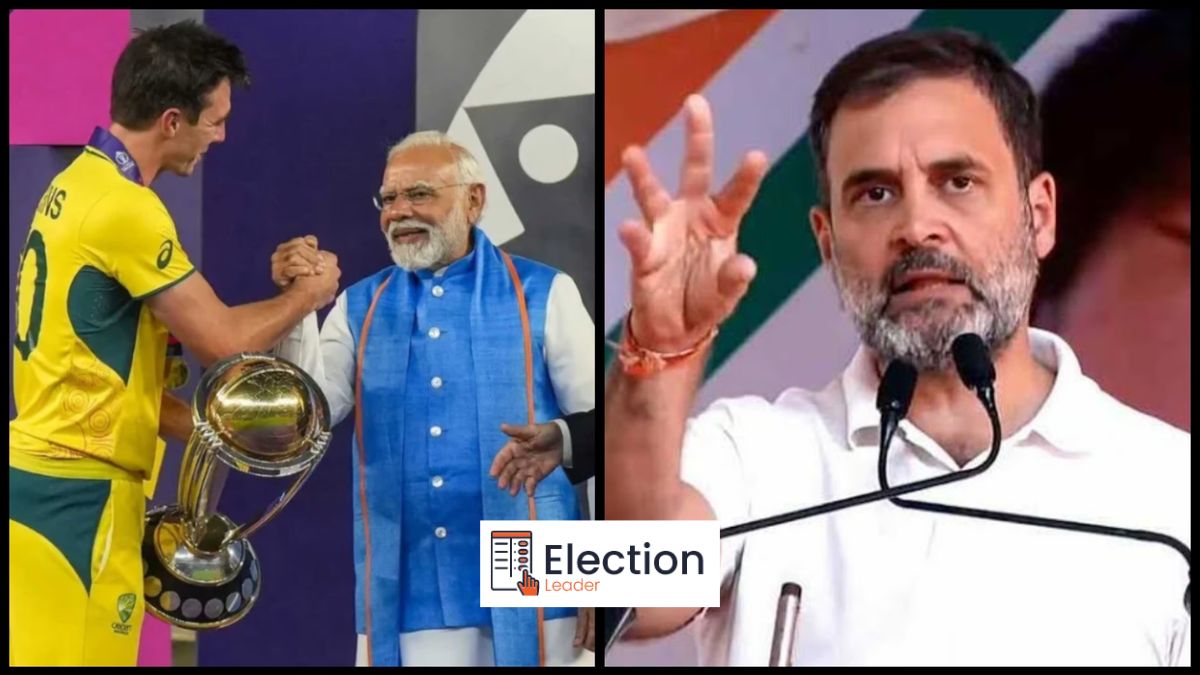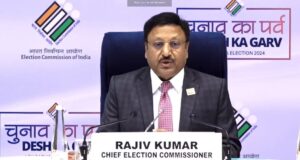Table of Contents
ToggleIntroduction
In the most recent political development, Rahul Gandhi, a well-known Congressman, received a notice from the Election Commission (EC) about his recent comments criticizing Prime Minister Narendra Modi. ‘Panauti’ is used in the aforementioned remarks, and a parallel to pickpocketing is made. This move by the EC has sparked a fresh wave of debates and discussions within the political arena. In this article, we delve into the details of the EC notice and the ensuing reactions, examining the implications of such comments in the context of electoral discourse.
The EC Notice
The Election Commission‘s notice to Rahul Gandhi stems from his choice of words during a recent political event. The use of ‘panauti,’ a term suggesting bad luck or an ill omen, and the analogy to pickpocketing have raised concerns about the appropriateness of language in political discourse. The EC, as the regulatory body overseeing elections in India, has deemed these remarks significant enough to warrant an official notice to the Congress leader.
The ‘Panauti’ Remark

The term ‘panauti’ is colloquially used to imply someone or something that brings bad luck. Rahul Gandhi’s employment of this term to characterize Prime Minister Modi raises questions about the tone and decorum expected in political discourse. The EC, in its notice, is likely to seek clarification on the intent behind such language and whether it aligns with the ethical standards set for electoral campaigns.
The Pickpocket Analogy
Equating the Prime Minister to a pickpocket is a metaphor that has ignited controversy. Analogies involving criminal activities can be potent rhetorical tools but also carry the risk of being perceived as inflammatory. The EC’s notice may delve into the appropriateness of using such comparisons, especially when directed at the head of the government.
Reactions and Responses
The issuance of the notice to Rahul Gandhi has triggered a range of responses from various quarters. Political opponents argue that such language not only violates ethical norms but also sets a precedent for a more aggressive and acrimonious electoral discourse. Supporters of Rahul, on the other hand, contend that his remarks were metaphorical expressions highlighting perceived issues with the Prime Minister’s leadership.
Political Discourse and Ethical Boundaries
The incident involving Rahul Gandhi‘s remarks brings to the forefront the question of ethical boundaries in political discourse. While spirited debates and criticisms are inherent to a democratic system, the choice of words and the manner in which critiques are framed can influence public opinion significantly. The EC’s notice serves as a reminder of the need for responsible and respectful language, especially when addressing the highest office in the country.
EC’s Role in Upholding Electoral Integrity
The Election Commission plays a crucial role in ensuring the integrity of the electoral process. By issuing notices for language that is deemed inappropriate or potentially inflammatory, the EC aims to maintain a level playing field and foster an environment conducive to healthy democratic practices. The notice to Rahul Gandhi underscores the EC’s commitment to upholding the ethical standards expected during election campaigns.
Historical Context of Political Rhetoric
Political history is replete with instances of sharp rhetoric, fiery speeches, and intense verbal duels. However, the evolving nature of political communication demands a constant reassessment of what is considered acceptable language. The EC’s intervention in response to Rahul Gandhi‘s remarks reflects an ongoing effort to adapt ethical standards to contemporary sensibilities.
Freedom of Expression vs Responsible Communication
The notice from the EC may be criticized for violating the right to free speech. Even though it’s a fundamental right, the right to free speech has obligations, especially for public figures. The EC’s job is to tread carefully while navigating the fine line between voicing disapproval and staying away from words that can spark conflict in the context of election debate.
Public Perception and Impact

Political discourse has a direct impact on public perception. Language that is perceived as disrespectful or derogatory can influence voters and shape their opinions. The EC’s notice to Rahul Gandhi draws attention not only to the specific remarks but also to the broader implications of language in shaping public discourse during election campaigns.
Conclusion: A Call for Responsible Communication
The Election Commission’s notice to Rahul Gandhi serves as a reminder that political discourse should adhere to certain ethical standards, especially in the run-up to elections. The use of terms like ‘panauti’ and the pickpocket analogy may add a dramatic flair to political rhetoric, but they also carry the risk of diminishing the quality of public debate. As the political landscape continues to evolve, the need for responsible communication becomes paramount, ensuring that electoral contests are centered around issues rather than sensational language. The incident involving Rahul prompts a broader reflection on the role of language in shaping the democratic narrative and the responsibility that comes with the right to express dissent in a vibrant democracy.
Why has the Election Commission issued a notice to Rahul Gandhi?
The Election Commission issued a notice to Rahul over his recent remarks targeting Prime Minister Narendra Modi. The remarks involve the use of the term ‘panauti’ and an analogy to pickpocketing.
What is the significance of the term ‘panauti’ in Rahul Gandhi’s remarks?
The term ‘panauti’ is colloquially used to imply someone or something that brings bad luck. Rahul used this term to characterize Prime Minister Modi, prompting the Election Commission’s attention.
What is the pickpocket analogy mentioned in the notice?
Rahul Gandhi likened Prime Minister Modi to a pickpocket in an analogy, which has raised concerns about the appropriateness of language in political discourse.
What is the Election Commission seeking clarification on in the notice?
The Election Commission is likely seeking clarification on the intent behind Rahul language and whether it aligns with the ethical standards set for electoral campaigns.
How are political opponents reacting to the Election Commission’s notice?
Political opponents argue that such language violates ethical norms and sets a precedent for a more aggressive and acrimonious electoral discourse.
What is the role of the Election Commission in upholding electoral integrity?
The Election Commission plays a crucial role in ensuring the integrity of the electoral process. By issuing notices for inappropriate language, it aims to maintain a level playing field and foster a healthy democratic environment.





